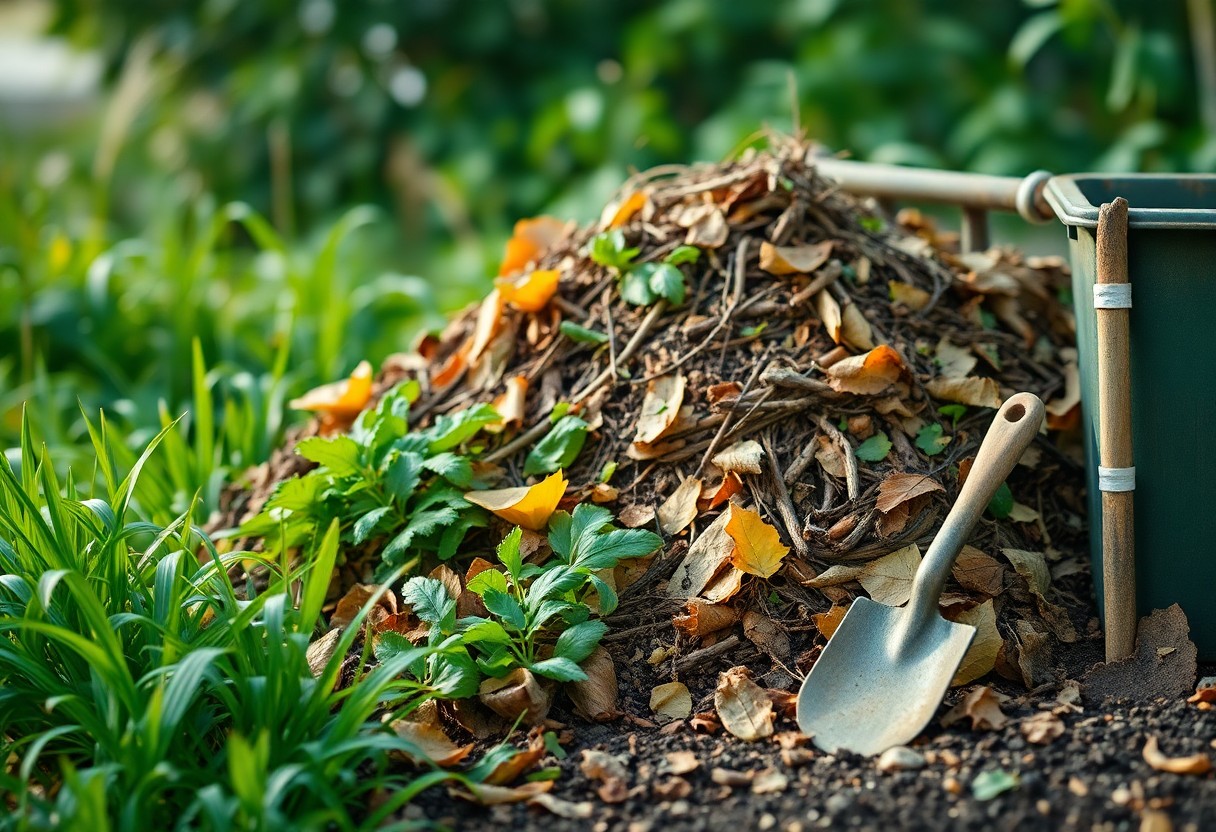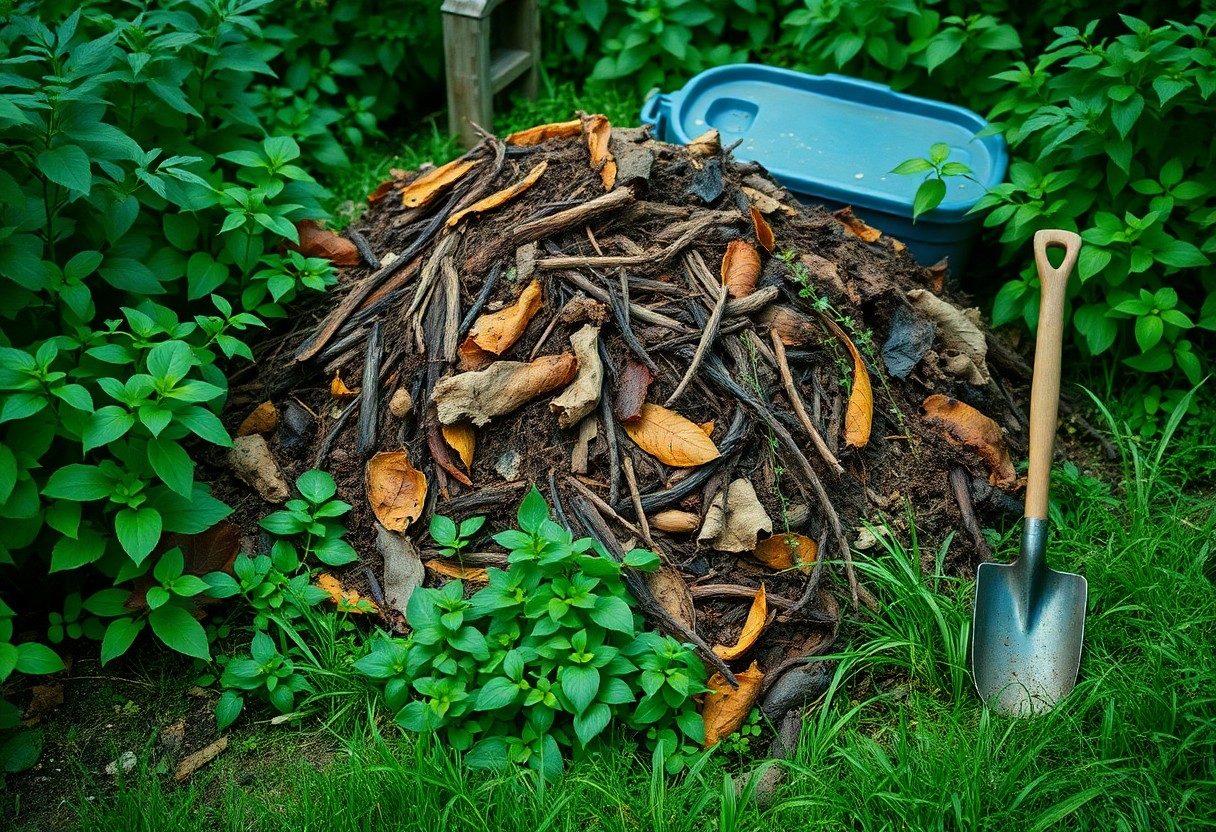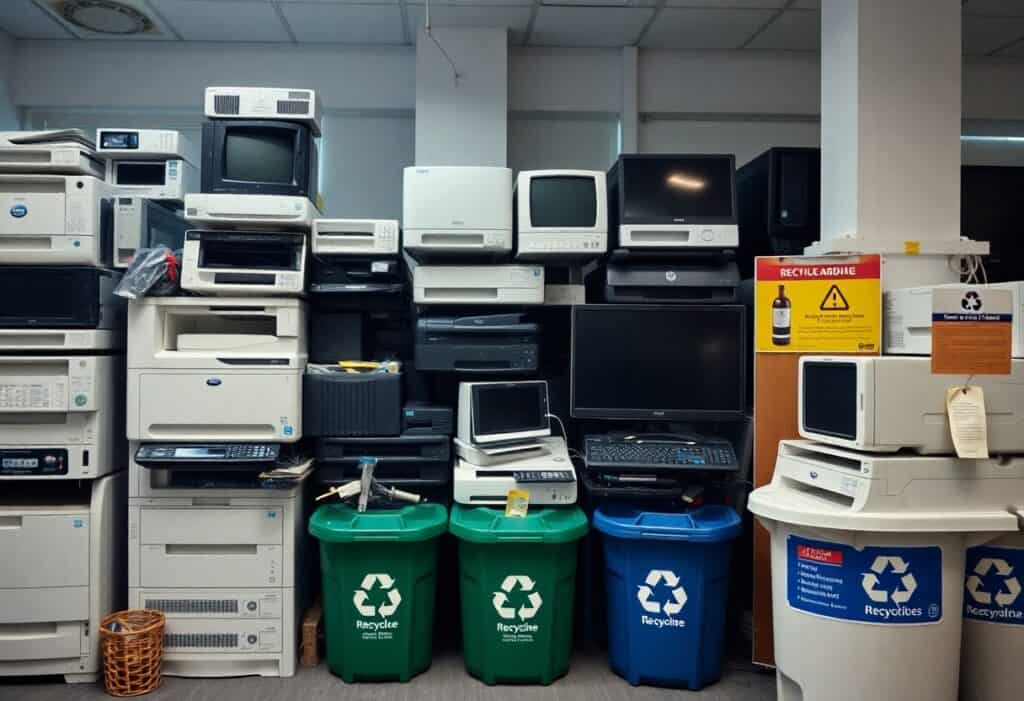Recycle your garden waste effectively to minimise your ecological footprint and enhance your garden’s health. By composting cuttings, leaves, and branches, you can transform what would otherwise be discarded into rich organic matter that nurtures your soil. Properly managing your garden waste not only reduces landfill pressure but also returns vital nutrients to the earth. In this guide, you’ll discover simple methods to manage your garden refuse sustainably, empowering you to make a positive impact on your environment.
Understanding Garden Waste
To manage your garden sustainably, it’s crucial to understand what constitutes garden waste. This type of waste includes any organic matter produced from gardening activities, such as plants, grass clippings, leaves, and branches. By grasping the importance of sorting and recycling this waste, you can contribute to reducing landfill use and creating a healthier environment for your garden.
Types of Garden Waste
One way to categorise garden waste is by its composition, which allows for effective recycling and disposal. Below is a breakdown:
| Type | Description |
| Organic Material | Fresh plant cuttings, grass clippings |
| Hardwood | Branches, sticks, and logs |
| Softwood | Prunings from shrubs and smaller trees |
| Leaves | Fallen leaves that decompose |
| Weeds | Unwanted plants that can be composted |
This understanding lays the groundwork for effective recycling strategies.
Common Misconceptions
Garden waste is often misunderstood, leading to inefficient disposal methods. Many people think that all garden waste can simply be composted, failing to recognise that some materials may contain pests or diseases that could affect your garden. It’s crucial to also avoid disposing of invasive species without proper treatment, as they can disrupt local ecosystems.
Plus, it’s important to be aware of the significant impact of contaminated waste on the composting process. Composting diseased plants can introduce pathogens into your compost, potentially harming your garden. Moreover, not all garden materials are suitable for traditional composting; for instance, thick branches require more advanced composting methods to break down properly. By distinguishing between safe and unsafe materials, you can achieve a healthier garden and a more effective recycling process.

How to Recycle Garden Waste
Any keen gardener knows that garden waste is a natural by-product of maintaining your outdoor space. By learning how to recycle this waste, you not only reduce landfill but also contribute to a more sustainable environment. Consider options such as composting, mulching, or recycling plant materials, ensuring your garden remains a vibrant, eco-friendly space.
Composting Techniques
With composting, you can transform your kitchen scraps and garden clippings into nutrient-rich soil. By layering brown materials like dried leaves and green materials such as grass clippings, you create an ideal environment for decomposition. Regularly turning your compost will speed up the process, allowing you to enjoy the benefits of your own organic compost faster.
Mulching Methods
To effectively recycle your garden waste, consider using mulching methods to enrich your soil. Mulch not only conserves moisture and suppresses weeds but also adds vital nutrients to your plants as it decomposes.
Recycle your garden waste by creating organic mulch using shredded leaves, grass clippings, or chipped branches. This natural barrier not only helps retain soil moisture and regulate temperature but also gradually enriches your garden soil. Avoid using diseased plants or weeds in your mulch, as they can introduce unwanted pests and diseases. Instead, focus on using clean, biodegradable materials to promote a healthier garden.
Tips for Effective Garden Waste Recycling
Some practical tips for effective garden waste recycling include:
- Separate your waste materials into compostable and non-compostable types.
- Use a chipper for larger branches to speed up the breakdown process.
- Consider donating excess plants or seeds to community gardens.
- Check local regulations on disposal methods and recycling facilities.
Knowing the right techniques can enhance your garden management. For more insights on what to do with garden waste, explore additional resources.
Choosing the Right Equipment
Assuming you want to make your garden waste recycling more efficient, selecting the appropriate equipment is necessary. Consider tools like compost bins, shredders, and chippers that facilitate the breakdown of organic matter for easy disposal. By investing in these implements, you can streamline your recycling process and enhance your garden’s health.
Timing Your Garden Cleanup
An effective garden cleanup relies heavily on timing. Always aim to clear waste after each major gardening activity, such as pruning or harvesting, to prevent build-up and promote a healthier environment.
Timing your garden cleanup appropriately not only improves your garden management but also allows for a more organised approach to waste disposal. Choosing specific times, like after autumn leaves fall or post-harvest peaks, can facilitate easier handling of your materials. This also reflects positively on biodiversity, as timely cleanups prevent habitats from being disturbed unnecessarily. Efficient timing ensures your garden remains pristine and optimises the recycling process.

Factors to Consider Before Recycling
Keep several factors in mind before starting your recycling journey. Consider the type of garden waste you have, the local facilities available to you, and the impact on your environment. Before you proceed, also assess the amount of waste and whether it can be reused or composted efficiently. Make sure to understand the regulations surrounding garden waste disposal.
- Type of waste
- Local facilities
- Environmental impact
- Amount of waste
Knowing how these factors interplay can guide you towards an effective recycling strategy.
Local Regulations
You must be aware of the local regulations regarding garden waste disposal as they can vary significantly. Ensure that you are adhering to guidelines set by your local council, as failure to do so can lead to fines or improper disposal methods. For example, some areas may require you to use specific bins or adhere to collection schedules. Staying informed will help you maintain compliance and support local environmental efforts.
Sustainable Practices
Before you start recycling your garden waste, consider integrating sustainable practices into your routine. This can include composting organic material, mulching, and reusing garden cuttings.
The more you adopt these sustainable practices, the greater impact you will have on reducing landfill waste. Composting transforms your organic garden waste into nutrient-rich soil, while mulching not only suppresses weeds but also retains moisture in your garden. Additionally, reusing cuttings can promote biodiversity by providing habitats for various wildlife. By actively participating in these environmentally-friendly methods, you contribute to a healthier ecosystem and reduce the amount of waste that ends up in landfills.
Additional Recycling Options
Despite your best efforts to recycle garden waste at home, there are other avenues for disposal that can further contribute to a greener environment. Exploring additional recycling options allows you to divert waste from landfills and support sustainable practices in your community. Consider investigating composting initiatives, local recycling centres, and specialised services that can handle specific types of garden waste.
Community Programs
Recycling garden waste can be greatly enhanced by participating in local community programmes. Many councils offer garden waste collection services, enabling you to easily dispose of your organic materials. By joining these programmes, you not only help reduce waste but also contribute to local composting efforts and encourage a healthier environment.
Donation Opportunities
Additional options for your garden waste include donating to local gardens or community projects. Many urban farms and community gardens appreciate organic material for composting or mulching, repurposing your waste to benefit the community.
Opportunities for donating your garden waste can positively impact both you and your local environment. Many community gardens, parks, and schools seek healthy green waste to use in their composting efforts, thus fostering sustainable practices. By donating, you not only clear your space but also provide valuable resources that enrich soil and promote growth. Ensure that your donations are free from pesticides or other harmful substances to protect the ecosystems and community projects benefiting from your generosity.
Best Practices for a Greener Disposal
Unlike conventional waste, recycling garden waste demands a mindful approach to ensure environmental safety. You can significantly improve your disposal practices by following guidelines outlined in What is Green Waste and Where Does it Go? A 7 Step …. This will help you identify the best methods for handling your green waste effectively.
Seasonal Tips
To optimise your garden waste recycling, consider the following tips:
- Compost leaves in autumn.
- Shred branches for easier disposal.
- Collect grass clippings after every mow.
- Plan pruning during dormancy for proper disposal.
Perceiving your garden’s seasonal rhythms can enhance your waste management strategies.
Long-term Strategies
An effective way to tackle garden waste is to establish consistent recycling habits. Over time, you can develop a routine that consistently redirects your garden waste away from landfills.
Practices such as composting, mulching, and community green waste collections will not only mitigate waste but will also enrich your soil and support local ecosystems. Investing in a bin for composting and encouraging neighbours to participate can foster a sustainable community effort. Furthermore, using native plants will subsequently lower your garden’s waste output and required maintenance. By making these long-term adjustments, you’ll contribute positively to the environment.
Conclusion
The effective recycling of garden waste is important for promoting a greener environment. By composting, mulching, or repurposing your organic waste, you can significantly reduce the amount sent to landfills. Implementing these practices not only benefits the planet but also enhances your garden’s health. For additional guidance and inspiration, here’s what to do with yard waste to maximise your efforts.
FAQ
Q: What types of garden waste can be recycled?
A: Garden waste that can typically be recycled includes grass cuttings, leaves, branches, plants, and flowers. Additionally, fruit and vegetable waste from your garden can also be composted. However, avoid including any diseased plants, weeds with seeds, or any non-biodegradable materials such as plastics and metals.
Q: How can I recycle garden waste at home?
A: You can recycle garden waste at home by setting up a compost bin or pile. This should include a mix of green waste (like grass clippings and vegetable scraps) and brown waste (such as dried leaves and branches). Ensure you turn the compost regularly to aerate it, which speeds up the decomposition process. Another method is to use a garden shredder to create mulch from branches and larger clippings, which can then be used to enrich your garden soil.
Q: What should I do with larger branches and tree cuttings?
A: For larger branches and tree cuttings, you can either chip them using a garden shredder for mulch or contact your local council for green waste disposal options. Many councils offer collection services or designated drop-off points for larger garden waste. Some companies also provide garden waste shredding services to make recycling easier.
Q: Are there any specific guidelines for composting garden waste?
A: Yes, when composting garden waste, ensure you maintain a balanced ratio of green and brown materials. It is advisable to chop larger items into smaller pieces to speed up the decomposition process. Keep the compost moist, but not soaking wet, and aerate it regularly. Additionally, avoid composting items like meat, dairy, and oily foods, as these can attract pests and create odours.
Q: How can recycling garden waste benefit the environment?
A: Recycling garden waste significantly benefits the environment by reducing the amount of waste sent to landfill, thus decreasing greenhouse gas emissions. Composting provides nutrient-rich soil that enhances plant growth and biodiversity in gardens. Moreover, using recycled materials such as mulch can help retain soil moisture, reduce the need for chemical fertilisers, and minimise water usage in gardening.



